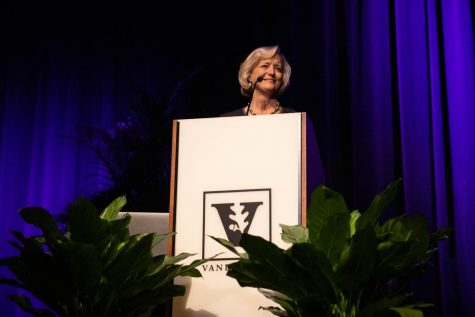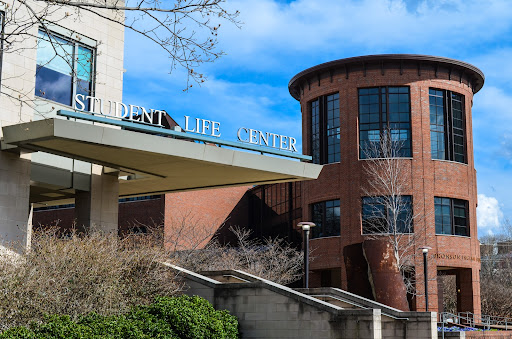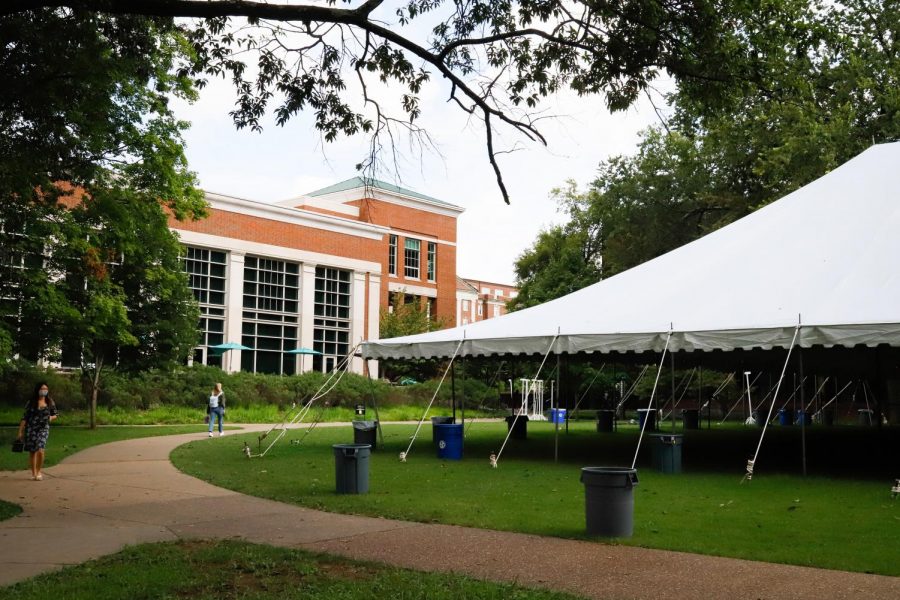Vanderbilt posted a message from Interim Chancellor Susan Wente April 17 addressing the economic impact of COVID-19. “Vanderbilt University is in a strong financial position relative to our peers,” Wente said in the letter. Here’s what you need to know about the impacts Wente described.
1. The negative economic impacts associated with COVID-19 will exceed $30 million.
How much the effects will exceed this amount will depend on the length of the pandemic, the message said.
“It is nearly certain that the slowdown in national economic activity, sharply rising unemployment levels and overall current economic downturn will affect the university in many ways.”

Interim Chancellor Susan Wente spoke before the Chancellor’s Lecture Series event with Former Vice President Al Gore.
2. The three major funding sources for the university are tuition, endowment & gifts and grants & contracts, all of which will be affected during the pandemic.
Tuition is the largest portion of operating revenues, and the school expects an increase in need for financial aid. This change results in less net tuition revenue.
“Regardless, should we face increased need for student aid, we will hold firm to our mission and values and continue our commitment to Opportunity Vanderbilt and our graduate/professional aid programs,” the message continued.
The value of the endowment has taken a hit in value during the crisis, and this will result in lower revenue distributions to support the university over the upcoming years, according to the email.The endowment is limited in how the university can use its fund; it comprises nearly 3,000 funds with varying restrictions and requirements. The university also anticipates a decrease in donated funds during the economic downturn.
Funding from grants and contracts—which are important for the “core mission of discovery and knowledge”—will also be impacted.
“The financial implications for research operations and funding due to COVID-19 disease management and the economic downturn remain unknown, but we will closely monitor potential effects as we plan for both short-term and long-term continuity,” the message read.
3. Steps to control costs include suspending discretionary spending through the end of the fiscal year; deferring annual salary merit increases and reviewing all construction and renovation plans.
Other steps include restricting staff hiring, requiring enhanced justification and explicit vice chancellor or dean approval, as well as releasing a short-term Voluntary Staff Departure Incentive Program.
4. The university aims to reduce expenses by five to ten percent for fiscal year 2021.
Strategies will include the steps outlined above. The university will not be conducting “across-the-board” layoffs or furloughs, and changes in staffing will be managed by individual colleges, schools and units.











